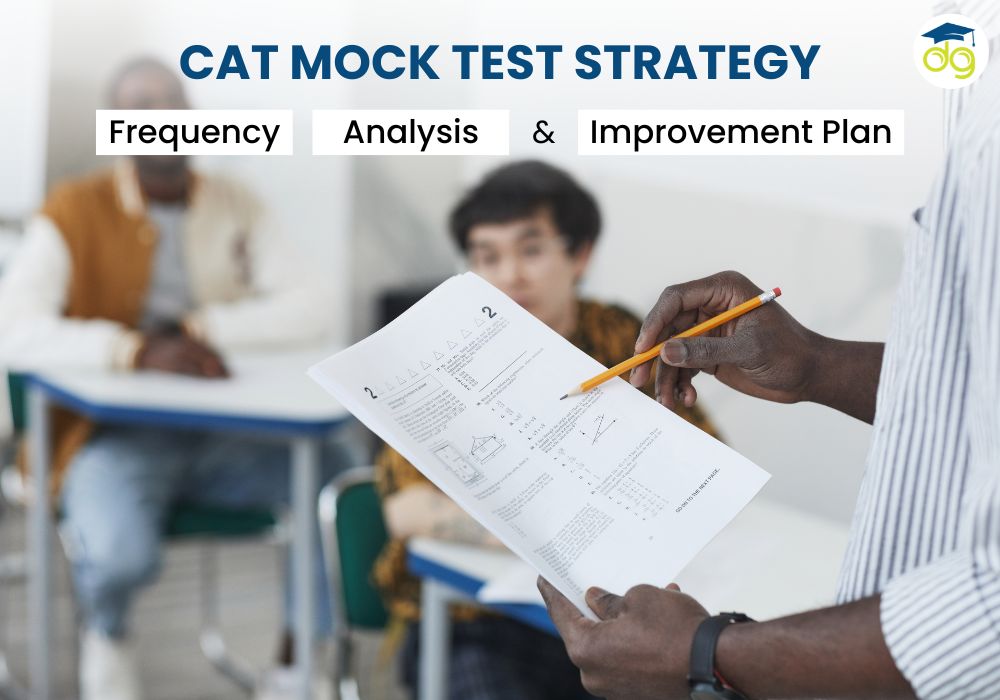"5 Reasons Why Mock Tests Are Essential for Indian Competitive Exam Success"
"How Mock Tests Boost Performance in Competitive Exams Like JEE & NEET"
Competitive exams in India are one of the most rigorous tests of a student's knowledge and mental endurance. In any case, be it JEE, NEET, UPSC, SSC, or Bank PO, preparation for these exams requires unrelenting effort, systematic planning, and efficient practice. Among all these factors, mock tests can play a very crucial role to help students attain success in those exams.
Mock tests offer much more than just practice—they simulate the actual exam environment, helping students prepare better and build the necessary skills to succeed. In this blog, we’ll explore the 5 key reasons why mock tests are critical for success in Indian competitive exams.
1. Understanding the Competitive Exam Landscape in India
India's competitive exam landscape is vast and varied. Aspirants are often faced with a wide range of exams—each with its own structure, syllabus, and exam pattern. Whether it's the engineering entrance exam (JEE), the medical entrance exam (NEET), the civil services exam (UPSC), or exams for public sector jobs like SSC and Bank PO, each requires a different preparation strategy.
What is constant is the pressure and competition. Millions vie for a few seats in top colleges, government positions or prestigious institutions. Such stiff competition calls for effective study methods to not only gain knowledge but also to sustain performance under pressure.
Mock tests help in this area by giving a simulation of the actual exam, where students get ample opportunity to familiarize themselves with the test format and assess their readiness and their practice under exam-like conditions. Regular mock tests help compare where a student stands along with others and adjust to the strategy of preparation as well.
2. Managing Time and Exam Simulation
One of the greatest challenges competitive exam aspirants face is time management. Most of these exams are time-bound, and students hardly ever cover the entire paper in the allotted time. In this respect, mock tests form an invaluable tool.
Mock tests resemble real-time conditions while sitting for the examination. Practicing mock tests teaches them to manage their time with efficiency, especially while they go through it in strict timed conditions. In the mock test situation, they would avoid spending most of their time on just one question. Instead, they will manage their pressure by ensuring they finish the entire paper in time.
Further, the mock tests enhance the speed and accuracy of solving the questions. By frequently answering the questions within a given time limit, the students can quickly develop the skills to solve more questions within the allotted time without sacrificing the precision of their answer. Such a skill is critical to success in competitive examinations such as JEE, NEET, or Bank PO.
3. Strengths and Weaknesses
One of the key benefits of mock tests is that they can tell you where you are strong and where you are weak in your preparation. No matter how much you have prepared, you cannot know where you stand until you test yourself under exam conditions. Mock tests give you an honest assessment of your preparedness, showing you which subjects or topics need more attention.
For instance, a student studying for JEE may realize that they must work on organic chemistry, whereas a person studying for NEET will realize that their physics concepts need to be revised. Through the analysis of results of mock tests, students can pinpoint these areas and focus their efforts in improving them. This way of targeted revision is far more efficient than revising everything at once.
Regular mock tests also enable the student to hone their strategies. Whether it is a matter of determining which section to prioritize, mastering shortcuts, or practicing difficult questions, the mock tests allow aspirants to hone their strategies over time.
4. Boosting Confidence and Reducing Exam Anxiety
The fear of the unknown is among the primary reasons for exam anxiety among students. Be it the fear of facing the new exam pattern or the stress of performing well in the competitive environment, many students experience crushing stress before the exam.
Mock tests ease this anxiety by providing familiarity with the pattern of the exam. For instance, a student preparing for the UPSC Civil Services exam might be unfamiliar with the intricacies of the General Studies paper or a student studying for NEET worried about the physics questions. Practice of mock tests will get familiar with question formats, negative marking, and time limits, thus reducing fear of the unknown.
In addition, regular practice with mock tests instills confidence. When students see improvement in their scores and get better at time management, they feel confident about their performance. This positive reinforcement reduces stress and helps to develop a "can-do" attitude towards the actual exam.
5. Monitoring Progress and Strategy Improvement
Mock tests are excellent tools to follow and refine strategies over time. In the weeks leading up to an exam, it would be important for students to know if their preparation was headed in the right direction or not.
Taking mock tests at set intervals helps students follow trends in performance over time. Are their scores improving? Is there some area where scores just aren't improving? The results of mock tests will help the students to alter their study plans and concentrate on areas where they require improvement. For instance, if a student finds that he or she performs poorly consistently in the quantitative aptitude section of a Bank PO exam mock test, then he or she will be able to concentrate on that area in the subsequent weeks.
Mock tests also provide an opportunity to assess how the performance is improving over time for aspirants preparing for exams like JEE or NEET, which are usually taken multiple times. The student can identify patterns in their performance and adjust the strategy accordingly by comparing results from different attempts.
Conclusion
Mock tests are an indispensable tool in the journey toward success in competitive exams. They not only provide a simulated exam environment but also offer a way to track your progress, identify weaknesses, and refine your strategy. Whether you’re preparing for JEE, NEET, UPSC, SSC, or any other competitive exam in India, incorporating regular mock tests into your study routine can significantly enhance your performance.
For more insights, tips, and resources about Indian competitive exams, log on to Skoodos Bridge. With expert guidance and extensive resources, Skoodos Bridge helps students navigate the challenging world of competitive exam preparation.
Frequently Asked Questions (FAQs) about Mock Tests
Q1: How often should I take mock tests during my exam preparation?
Ideally, there isn't a one-size-fits-all answer, but typically speaking, aspirants must start taking mock tests 2-3 months before the actual exam. One good start would be to take one test a week initially. As you progress towards the exam date, you can increase your mock tests to 2-3 per week to build that sort of intensity in actual examination settings.
Q2: What sources of mock tests are good and quality for my exam?
There are many online portals through which the mock test series can be conducted for Indian competitive exams. Popular portals in the segment include Byju's, Unacademy, Testbook, and Embibe - each having subject-specific mock tests, a full-length practice test and exam simulator across different Indian competitive exams. Many offer free tests; other sites might require a subscription fee for gaining access to premium material.
Q3: Should I check upon my wrong answers after conducting a mock test?
Absolutely! Reviewing your mistakes is one of the most important aspects of taking mock tests. It is not enough to simply take a test without going through the results. In fact, students can find patterns, identify areas of knowledge gaps, and improve their understanding of the subject by carefully reviewing incorrect answers.
Q4: Do mock tests help me in time management?
Yes, mock tests are specifically designed to improve your time management skills. By simulating the time constraints of the actual exam, mock tests help students practice solving questions quickly and efficiently while maintaining accuracy. Over time, this can lead to better performance in the actual exam.
Q5: What should I do if I score poorly in a mock test?
Scoring poorly in a mock test is not the end of the world—it’s a valuable learning experience. Use it as an opportunity to identify your weaknesses and focus on improving them. Adjust your study plan, work on topics where you’re weak, and retake the mock tests to track your progress.
Categories
Archives
Similar Posts

Toppers’ Advice: How to Score 99+ Percentile in CAT Exam 2025
by Skoodos Bridge


Cover NCERTs for UPSC in 60 Days: A Strategic Study Plan
by Skoodos Bridge

CAT Mock Test Strategy: Boost Scores with Analysis & Planning
by Skoodos Bridge

JEE Advanced 2026: Top Scoring Topics Based on Past Trends
by Skoodos Bridge


SSC CGL Syllabus & Exam Pattern 2025: Tier-wise Full Breakdown
by Skoodos Bridge

English Preparation for Banking Exams: Grammar, Vocabulary & RC Tips
by Skoodos Bridge

Monthly UPSC Current Affairs PDF: Why It Matters & Where to Find
by Skoodos Bridge


Leave a Comment